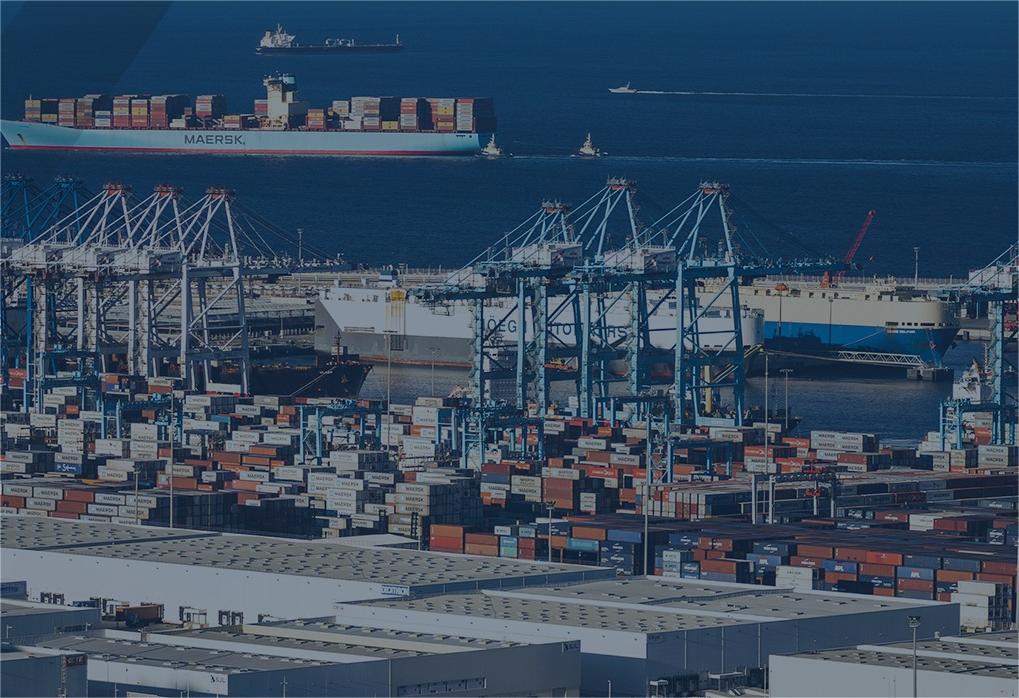Improvements were recorded in world’s largest ports in high-income countries, as well as ports in developing countries.
by Blue Africa News
Egypt’s Port Said and Morocco’s Tanger Med have been ranked Africa’s top-performing ports, placing 3rd and 5th globally respectively, in the 2024 Container Port Performance Index (CPPI) report, jointly released by the World Bank Group and S&P Global Market Intelligence.
The two North African ports are the only container ports in Africa ranked among the world’s top 20 in a list dominated by Chinese ports.
Posting a score of 137.4, Port Said elbowed Tanger Med from its long-standing number 1 position in Africa, after several strategic investments and reforms at the Egyptian port.
The investments include the ongoing major expansion of the Suez Canal Container Terminal (SCCT) at East Port Said, supported by a loan from the International Finance Corporation (IFC).
The expansion, the CPPI report notes, seeks to increase the terminal’s capacity by an additional 2.1 million (twenty-foot equivalent units (TEUs), resulting in a total installed capacity of 6.6 million TEUs.
Additionally, Port Said’s authority and terminal operator (a consortium led by APM Terminals and Cosco) have implemented digital port-community systems and optimization of vessel scheduling, immensely improving efficiency.
The margins between the Port Said and Tanger Med are small. With a score of 135.8 in 2024, Tanger Med posted a slight dip compared to 139 in 2023. However, the decline is not a sign of weakening capacity, but possibly a historic achievement. Tanger Med handled over 10 million TEUs for the first time during the year under review, placing it 17th worldwide by volume.
In Sub-Sahara Africa, Senegal’s Port of Dakar secured position 108th globally with a score of 23, marking an improvement of more than 100 places compared to 2023, with the new ranking being attributed to custom reforms and fresh investments in port infrastructure.
“Dakar is the highest-ranked port in Sub-Saharan Africa in 2024,” the CPPI report says.
“The port, operated by DP World since 2008, has undergone significant investment, including the installation of new cranes, expansion of its yards, and the development of a port community system. Dakar’s performance also reflects improvements in hinterland connectivity and trade facilitation. Road links have been upgraded, rail rehabilitation towards Mali is underway, and a single-window customs system is reducing dwell times. Liner shipping connectivity has increased, with Dakar now receiving direct services from Asia” the report reads.
CPPI ranked 403 container ports globally. Somalia’s Mogadishu port was ranked among the top 10 in Africa, and 163rd globally, ahead of Madagascar’s Toamasina (177), and Sierra Leone’s Freetown (216).
Mozambique’s Beira was ranked 292nd, ahead of the country’s ports – Maputo and Nacala, while Tanzania’s Dar es Salaam, the port of Djibouti and Kenya’s Port of Mombasa were ranked 360th, 364th and 375th respectively.
Amid struggles with congestion and structural inefficiencies, South Africa’s Durban Port was ranked last (403) worldwide, while Cape Town was ranked at position 400.
Overall, the report said, Port performance across the world declined between 2020 and 2024 due to the Red Sea Crisis, challenges at the Panama Canal, and pandemic-related shocks.
However, the annual report, which is in its fifth edition, noted that improvements were recorded in world’s largest ports in high-income countries, as well as ports in developing countries.
“It’s a reminder that with better planning, technology, and cooperation across the logistics chain, ports can make significant strides in their efficiency,” noted Nicolas Peltier-Thiberge, Global Director for Transport at the World Bank.
Turloch Mooney, Global Head of Port Intelligence & Analytics at S&P Global Market Intelligence said that as the world navigates an increasingly complex global shipping environment, understanding and improving port performance is essential for economic growth and competitiveness.
Oliver Ochieng, Blue Africa News

